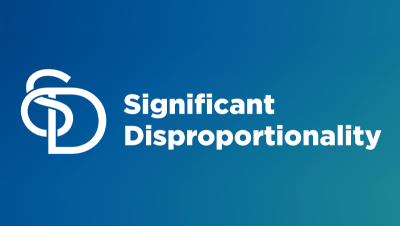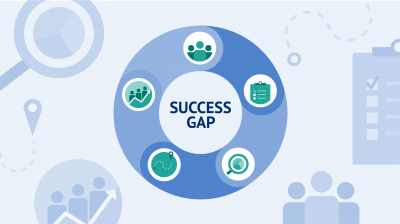
Resource Library
Guides. Briefs. Toolkits. Quick reference information. IDC and its partners created these data quality resources to help states better prepare to address their existing or emerging IDEA data quality needs. Use our search and filtering tools to navigate the library.
Resources 1 - 7 of 12
Format: Quick Reference
Response Rate, Representativeness, and Nonresponse Bias—They All Matter!Response rate and representativeness are important terms in survey work. Consideration of both is necessary to ensure that collected data are valid and generalizable. This resource briefly defines and compares the terms while also explaining how they relate to nonresponse bias.
This new resource can support SEA staff who prepare for the data systems and SPP/APR components of DMS 2.0. It includes a review of the Parts B and C—Data and SPP/APR Protocol along with IDC’s suggested evidence that an SEA may provide to OSEP in support of each monitoring question in the protocol. This resource also includes a list of IDC TA resources that states can use to create or strengthen their evidence.
Format: Quick Reference
Significant Disproportionality ResourcesThe Equity in IDEA regulations require states to determine annually if local education agencies (LEAs) are identified with significant disproportionality. The regulations outline specific requirements related to methods for identifying LEAs and activities the LEAs must complete after they are identified. These significant disproportionality resources can assist states with implementing these requirements and supporting LEAs through the process of meeting the requirements.
Format: Toolkits
SEA Data Processes ToolkitUsing the SEA Data Processes Toolkit to document data processes for all 616 and 618 data collections will establish a well-managed process for data collection, validation, and submission. In collaboration with IDC State Liaisons, states can use the toolkit to create and maintain a culture of high-quality data and establish and support consistent practices that produce valid and reliable data, while building the capacity of state staff.
Format: Toolkits
Success Gaps Toolkit: Addressing Equity, Inclusion, and OpportunityThe Success Gaps Toolkit presents a process for using data and the Success Gap Rubric to identify root causes of gaps between groups of children in districts or schools. These success gaps occur when the education system is not meeting the needs of all groups of children and outcomes for some groups are different than outcomes for most groups. The toolkit, with its process and materials, provides a manageable and defined way for districts or schools to identify success gaps that are present and their root causes and then make a plan for addressing the gaps. The success gaps may be the graduation rate of students who are English learners compared to the rate of all other children, the out-of-school suspension rate of children who are Black compared to the rate of all other children, the identification of children who are Hispanic as children with specific learning disabilities compared to the identification of all other children, and other gaps.
Format: Guides and Briefs
Success Gaps Rubric: Addressing Equity, Inclusion, and OpportunityThis rubric allows a team of users from a district or school to systematically examine the root causes of success gaps among groups of students by focusing on equity, inclusion, and opportunity. The recently updated rubric now includes considerations for children as young as preschool age. A complementary white paper provided the research-based background that supported development of the rubric.
Format: Applications and Spreadsheets
Coordinated Early Intervening Services (CEIS) Fiscal and Student Data TrackerThe Coordinated Early Intervening Services (CEIS) Fiscal and Student Data Tracker is a set of four tools SEAs can use with their districts, schools, and providers to assist them in tracking the finances, services, and student data associated with CEIS. IDC and CIFR produced the CEIS Tracker. The resource also includes an instructions document or user's guide for more information about when and how to use the CEIS Tracker.







